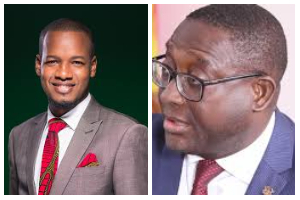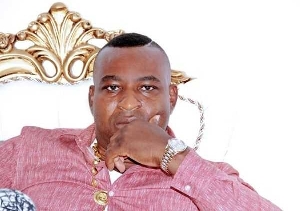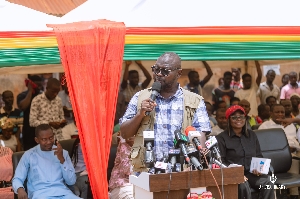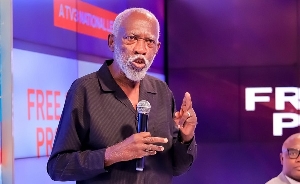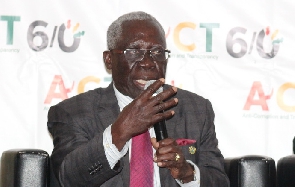When John Agyekum Kufuor won the 2000 Presidential Elections and declared Zero Tolerance for corruption, he was hailed as the saviour who has come to clean up the stables of contaminated local politics. For a considerable period in 2001 and 2002, the President and the administration seemed to do no wrong. He could walk on water in the eyes of ever-grateful Ghanaian masses that believed, rightly or wrongly, that Kufuor and his New Patriotic Party, are a fresh breed of politicians who would not repeat the mistakes of the past.
So far, there has been no identification haircut and the Castle is largely free. The President has refrained from using state television and other media of mass communications to heap insults on his political opponents. But evidence is emerging those old habits die-hard.
Quite recently, the Government was forced to withdraw from a deal contracted by the Minister of Roads and Transport Richard Kwadwo Anane under which Nationwide, a relatively smaller airline operator in South Africa would have taken over the running of Ghana Airways. Evidence adduced by opponents of the deal suggested that the country would have been short-changed.
Coming at the heels of the IFC loan fiasco, it puts the credibility of the Government on the line at a time when almost 100 percent hike in petroleum products has induced severe economic hardships on most of the people. When the Government announced the steep petroleum increases, it added that ministers of state and other top government functionaries would be required to make the same sacrifices the people are being called upon to make. I am afraid the sacrificial call appears not to have landed effectively. For instance, under the guidelines on official use of petroleum products, ministers of state and top government functionaries are banned from using four wheel-drive vehicles in the cities. They could use them on the highways, according to the guidelines. There is evidence that four-wheel vehicles have yet to be kicked to touch on city roads. Ministers are still riding in the cities in four-wheel drives.
While adhering to the directive may not immediately wish away the myriads of economic problems facing the country, the failure on the part of ministers of state to observe this simple instruction could undermine government authority in its dealing with the people of Ghana. One hopes the President and his aides would take note.
While we are at it, it is pertinent to draw the President's attention to the volcanic eruption waiting to explode on the agreement under which Telenor, the Norwegian telecommunication conglomerate has been brought in to administer Ghana Telecom under a so-called management service contract. The tenets of the agreement flies against Positive Change and Zero Tolerance for Corruption and should be thrown out of the window before it becomes a major stumbling block in our endeavour to move forward as a nation.
As a Ghanaian, I am seriously aggrieved by the tendency of officialdom to ignore the expertise of Ghanaians both at home and in the Diaspora when it comes to finding the right expertise to run state institutions. On an Accra FM station on Friday, the Member of Parliament for Gomoa West Ama Benyiwa Doe made an assertion that was lost in the cloud of politicking under which the statement was made.
She said when the New Patriotic Party was campaigning for political office; one of their catch phrases was that they have the men and women to deliver this country from the woods. Since assuming office, they have specialized in handing this country over to foreigners. She cited the bungled attempts to hand Ghana Airways to Nationwide of South Africa, the deal under which Telenor of Norway were brought in to take charge of Ghana Telecom and the abortive Milan Zivadinovich handling of the national soccer team, the Black Stars.
When this nation had independence in 1957, there were not many Ghanaians with the expertise to run sensitive areas of the national economy. To address the issue, Dr Kwame Nkrumah expanded the frontiers of education. Now Ghanaians with the right expertise to run all manner of businesses abound both at home and abroad.
A Ghanaian runs the United Nations secretariat competently. As a matter of fact, Kofi Annan is credited with being one of the most effective managers of the global organization with its security council and several agencies. On the African continent, Dr S.Y. Amoako is doing an excellent job running the Economic Commission for Africa. Nearer home, Dr Ibn Chambas, who got the nod as Executive Secretary of the Economic Community of West African States is doing a yeoman's job administering the complex organization of Francophone, Anglophone and Lusophone countries.
At home and abroad, there are a number of Ghanaians out there who can run Ghana Telecom effectively. As a matter of fact, there is evidence that when a three-man Interim Management Committee was set up to manage the affairs of the telecommunications company in place of the Malaysians, recently, the Ghanaians did an excellent job. Why then did the Minister of Communications and Technology Felix Owusu-Agyapong suddenly consign the Ghanaians to the touchline in place of Telenor?
The answer tells a lot about the culture of going for things foreign. The circumstances under which Telenor were brought in and the various interests surfacing since this writer began looking into the contractual agreements suggests that interests other than the welfare of Ghana dictated the arrival of Telenor in Ghana.
In the first place, the advertisement asking for a new company to take over the role of Telekom Malaysia clearly spelt out that only strategic investors would be entertained. When Telenor were paraded as the winners of the bid, it presupposed that they were chosen on the basis that they would invest money and engineering know-how that was not readily available to this country in Ghana Telecom. It turned out finally that Telenor were after all not going to invest in Ghana Telecom. They were only service managers for which scarce foreign exchange would have to be used in paying.
So far, seven Norwegians have arrived. Under the service contract agreement, the total cost of hiring the seven is equivalent to twice the wages and emoluments of the 3,900-member workforce. The 3,900 Ghanaians earn a total of about $1m a year. The Norwegians will earn a minimum of $150,000 per month or $1.8m per annum. They are also to have free accommodation with swimming pools, free cars and unlimited supply of petrol paid for by the Ghanaian taxpayer. My understanding is that Telenor intends to recruit a number of middle range management staff from Norway. What has happened to Ghanaian know-how?
If these are annoying, wait until you have read what is following. Under the contractual agreement, the Norwegians will be paid special service bonuses if Ghana Telecom makes a profit, (mark these words) exceeding 10 percent. There is no clause that Telenor would have to prove that the 10 percent profit is due to their expertise. On the other hand, if Ghana Telecom postes a loss of about 10 percent under Telenor management, they would be made to pay punishment provided it could be proved that the loss could be traced to their performance. Come on! Someone would have to tell Ghanaians something. What kind of mind produced this agreement if there was no inducement?
There is more! Even before Telenor settled in to their service contractual job, they produced a Business Plan which cost the Ghanaian taxpayer $600,000 (about c5.4billion). Now, one would like to believe that when you are seeking such a top management job, you have to show, through some form of business plan that you could deliver. Why then was the Ghanaian taxpayer made to pay for the business plan? I am getting uncomfortable with the tendency to dole away the little foreign exchange on such a flimsy excuse.
I have stated before in this column that I am not a lawyer. But when I see a conflict of interest scenario, I recognize one. By selling the Business Plan to the good people of Ghana, Telenor has no business working with it. President Kufuor is invited to save his face and that of his government. The Telenor agreement belongs to the dustbin. The men from the cold should be sent packing. And the last but not the least, those who caused the $600,000 loss should have a warm date with the Fast Track High Court. The President has a duty to respond to our worries and pretty soon!
In the next issue: Men Behind the Telenor deal. Watch this space!



